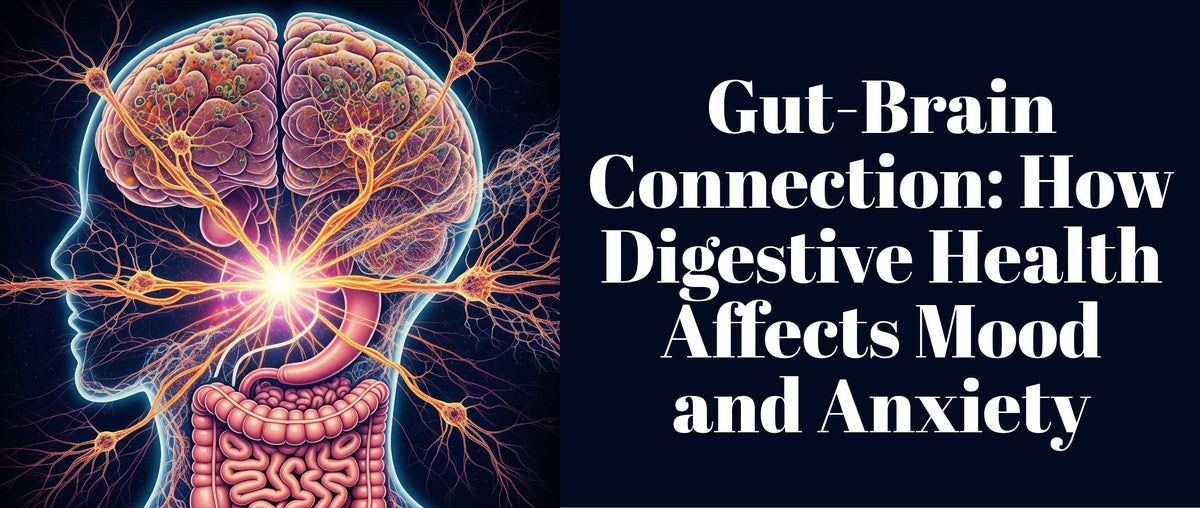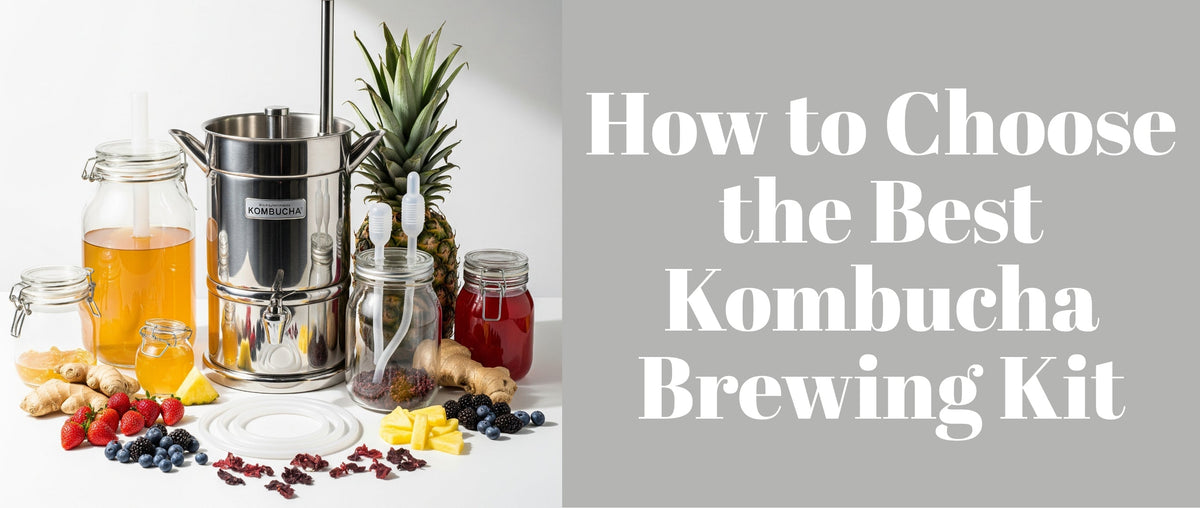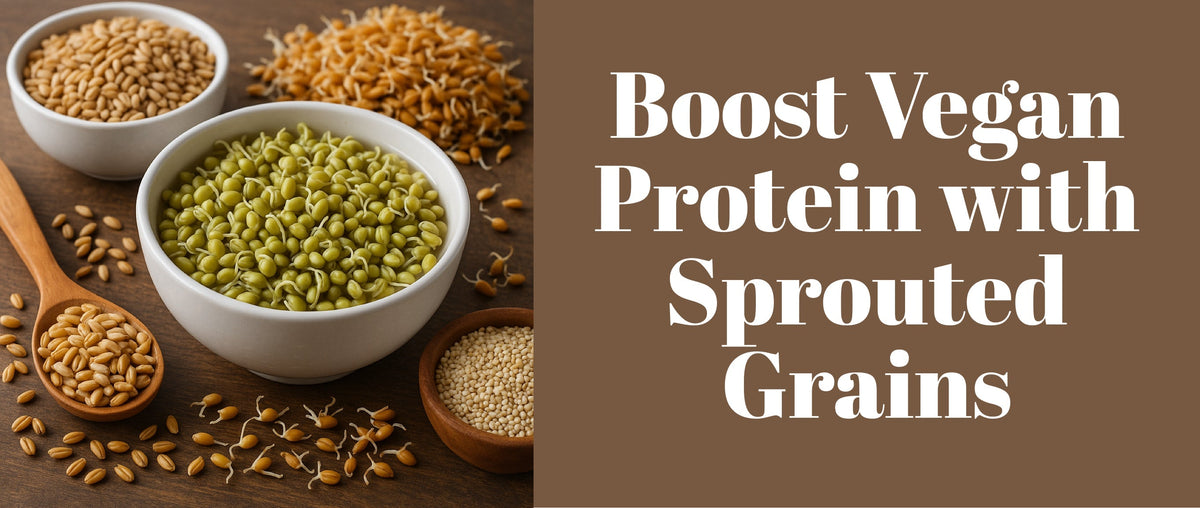Gut-Brain Connection: How Digestive Health Affects Mood and Anxiety
The intricate relationship between our digestive system and mental health has garnered significant attention in recent years. This connection, often referred to as the gut-brain axis, underscores how our digestive health can influence our emotional well-being.
At the heart of this relationship lies the gut microbiome—a vast community of trillions of microorganisms residing in our gastrointestinal tract. These microbes play a pivotal role in various bodily functions, including the production of neurotransmitters that regulate mood and anxiety.
Understanding this connection is crucial, especially in today's fast-paced world where stress and dietary choices can disrupt our gut health, leading to emotional imbalances. By nurturing our digestive system, we can pave the way for improved mental health and overall well-being.
Understanding the Gut-Brain Axis – A Dialogue Between Two Worlds
The gut-brain connection—often referred to as the gut-brain axis—is an intricate, bidirectional communication system linking the gastrointestinal tract to the central nervous system. This dynamic interaction influences more than just digestion; it plays a significant role in our emotional and psychological well-being. Emerging research reveals that the health of our digestive system can shape our thoughts, feelings, and behaviors in powerful ways.
The Role of the Enteric Nervous System
The enteric nervous system (ENS), sometimes dubbed the "second brain," consists of over 100 million nerve cells embedded in the walls of the gastrointestinal tract. This independent nervous system controls the digestive process and communicates directly with the brain via the vagus nerve—a critical highway for transmitting neural messages.
Gut Microbiota – The Microbial Orchestra
Our intestines are home to trillions of bacteria, viruses, and fungi collectively known as the gut microbiota. These microorganisms play a pivotal role in digestion, immune response, and the production of neurotransmitters such as serotonin, dopamine, and GABA. Interestingly, around 90% of the body's serotonin—a key mood regulator—is synthesized in the gut. A balanced microbiota promotes emotional stability, while an imbalanced one can lead to anxiety and depression.
Scientific Evidence Linking Gut and Mood
Multiple studies underscore the gut's influence on mental health. According to research published in the Journal of Psychiatric Research, individuals with irritable bowel syndrome (IBS) often report heightened levels of anxiety and depression. Another study from Frontiers in Psychiatry found that probiotics could alleviate symptoms of stress, suggesting a direct influence of gut flora on emotional well-being.
In essence, the gut-brain axis forms a continuous feedback loop. When the gut is inflamed, leaky, or populated with harmful bacteria, the brain receives distress signals, potentially leading to mood disturbances.

Healing the Gut to Soothe the Mind – Nutritional and Lifestyle Strategies
Diet – You Are What You Eat
Your dietary choices profoundly impact the gut microbiota. A diverse, fiber-rich diet helps nourish beneficial bacteria. Here's how to structure your diet to support your gut-brain health:
- Fermented Foods: Include foods like sauerkraut, kimchi, kefir, and plant-based yogurts. These promote the growth of healthy bacteria.
- Prebiotics: Foods like garlic, onions, bananas, and oats feed existing gut bacteria.
- Probiotics: Consider probiotic supplements or foods that contain live cultures.
For those following a plant-based lifestyle, incorporating vegan products can be equally effective. For example, plant based cheese, vegan butter, and cashew butter are excellent alternatives that are gentle on the gut and support overall health.
Cheese, Butter, and the Gut-Brain Link
While traditional cheeses can contribute to inflammation and digestive distress in some individuals, choosing the right alternatives can make all the difference.
- Opt for Unprocessed Cheese instead of processed varieties loaded with additives.
- Use fat free cheese or fat free butter to minimize inflammatory triggers.
- Prefer unsalted butter or garlic butter in moderation for flavor without compromising gut health.
- Enjoy small amounts of parmesan cheese—a naturally aged, probiotic-rich cheese with lower lactose content.
If you're a pizza enthusiast, choosing the best mozzarella cheese for pizza can also influence your gut. Look for options like mozzarella cheese block, or consider mozzarella cheese online from trusted vendors who offer best mozzarella cheese in India made without artificial preservatives.
Stress Management
Stress wreaks havoc on the gut lining and microbiota. Practices like yoga, mindfulness meditation, and deep breathing can restore balance to both the brain and the gut. Studies show that consistent stress reduction techniques lower cortisol levels and improve gut motility.
Sleep Hygiene
Poor sleep quality disturbs the circadian rhythms of gut bacteria, affecting digestion and mood. Aim for 7–9 hours of quality sleep and maintain a regular sleep schedule.
Exercise and Movement
Regular physical activity enhances microbial diversity and promotes better digestion and brain function. Even a 30-minute walk daily can make a significant difference.
Also Read
The Future of Mental Wellness – Embracing Gut Health as a Therapeutic Tool
Psychobiotics: A Glimpse into Tomorrow
Psychobiotics are specific strains of probiotics that exert a beneficial effect on mood and cognitive function. These are emerging as potential alternatives or adjuncts to traditional psychiatric medication. Strains like Lactobacillus rhamnosus and Bifidobacterium longum have shown promise in reducing symptoms of depression and anxiety.
Personalized Nutrition
The future lies in personalized gut health regimens. Advances in microbiome testing can help tailor diets and supplements to individual needs, offering more precise and effective interventions.
The Rise of Vegan and Plant-Based Diets
As awareness grows about the benefits of plant-based nutrition, more people are exploring vegan products to support gut and mental health. Products like vegan cheese, plant based cheese, and Cashew butter are not only ethical and sustainable choices but also easier on the digestive system.
Furthermore, the availability of options like buy mozzarella cheese, especially when opting for the best mozzarella cheese in India, ensures that even indulgent meals can be part of a balanced, gut-friendly diet. Whether it's mozzarella cheese online or locally-sourced mozzarella cheese block, making informed decisions can support both taste and health.
Integrative Therapies
Healthcare providers are increasingly advocating for a multidisciplinary approach. Gut-directed hypnotherapy, cognitive-behavioral therapy, and nutritional psychiatry are being used in conjunction to treat both gut disorders and mental illness.
Conclusion
The gut-brain connection represents a transformative frontier in health and wellness. By acknowledging the profound impact of digestive health on mood and anxiety, we open new pathways for healing. Whether it's choosing the right parmesan cheese, switching to fat free cheese, or simply incorporating more fiber-rich, plant-based meals, every decision counts.
Adopting a holistic approach—grounded in science and supported by conscious lifestyle choices—can help us live not just longer, but better, calmer, and more connected lives.
Do you enjoy vegan food? We have a list of vegan restaurants in India to help you find delicious options in your area!










